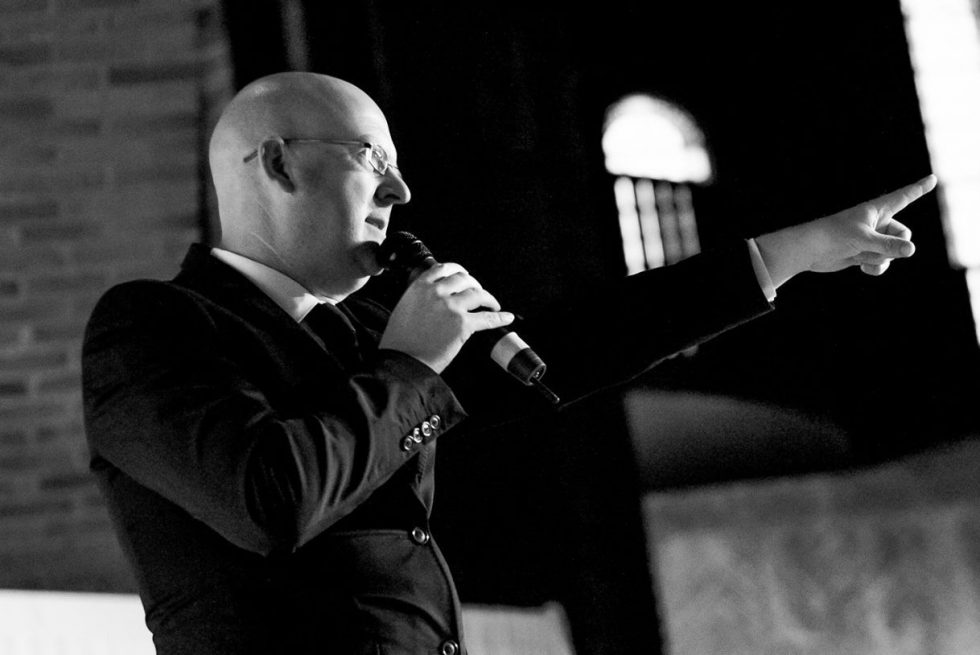
How to be a Master Communicator
Effective communication is a vital skill that can transform your personal and professional relationships, empower you to inspire others, and open doors to endless opportunities. In this guide, we will explore the qualities of a master communicator, the essential qualifications to develop, and practical exercises to enhance your communication skills.
Communication goes beyond mere words. It’s about connecting with others on a deeper level, understanding their perspectives, and leaving a lasting impact through your words and actions. Whether you’re a student, professional, or simply someone seeking personal growth, this blog post will provide valuable insights and strategies to help you become a master communicator.
Throughout this guide we will address common questions like “What is a master communicator?” and “What makes a powerful communicator?” We’ll also explore barriers to communication and provide practical exercises you can incorporate into your daily routine to refine your communication skills.
Our goal is to empower you to communicate with confidence, authenticity, and empathy. By implementing the strategies and exercises shared in this blog, you’ll be equipped with the tools to engage, influence, and inspire those around you.
Are you ready to embark on this transformative journey? Let’s dive in and discover the secrets of becoming a master communicator together. Get ready to unlock your full communication potential and make a positive impact in every area of your life.
What is a Master Communicator?
Being a master communicator goes beyond just being able to convey your message effectively. It means connecting with others on a deeper level, inspiring and motivating them through your words, and fostering meaningful relationships. A master communicator is someone who understands the power of words and knows how to use them to influence and positively impact others.
What are the 4 qualifications of a Master Communicator?
To become a master communicator, there are four essential qualifications that you should strive to develop:
- Empathy: A master communicator possesses a genuine understanding and empathy for others. By putting yourself in someone else’s shoes, you can better grasp their perspective, emotions, and needs. This allows you to tailor your message in a way that resonates with them, fostering a stronger connection and trust.
- Active Listening: Listening is an art that many overlook, but it’s crucial for effective communication. A master communicator actively listens, giving their full attention to the speaker. They focus not only on the words being said but also on the underlying emotions and non-verbal cues. Through active listening, you demonstrate respect and validate the speaker’s thoughts and feelings.
- Clarity: Master communicators have the ability to convey their ideas with clarity and precision. They organise their thoughts in a logical manner, use simple language, and avoid jargon or unnecessary complexity. By expressing ideas clearly, you ensure that your message is easily understood and remembered.
- Adaptability: The world of communication is diverse, and a master communicator knows how to adapt their style to different situations and audiences. They are flexible, recognising that each individual or group may require a different approach. Adapting your communication style allows you to connect with a wider range of people and build stronger relationships.
What are the barriers of communication?
While communication is vital, it’s not always smooth sailing. There are several common barriers that can hinder effective communication:
- Lack of Clarity: When your message is unclear or ambiguous, misunderstandings can arise. It’s important to be concise and articulate, ensuring that your intentions are accurately conveyed.
- Noise and Distractions: Environmental factors such as noise, interruptions, or distractions can disrupt communication. Minimising these distractions and finding a conducive environment helps maintain focus and attention.
- Emotional Barriers: Emotions play a significant role in communication. Negative emotions like anger, fear, or stress can hinder effective dialogue. Being aware of your emotions and managing them effectively can prevent them from becoming barriers to communication.
- Assumptions and Stereotypes: Preconceived notions or stereotypes can distort the way we perceive others and influence our communication. A master communicator is open-minded, setting aside assumptions and biases to truly understand and connect with others.
What makes a powerful communicator?
A powerful communicator possesses certain traits that set them apart:
- Confidence: Confidence in your communication abilities instills trust and credibility in your audience. It allows you to speak with conviction and authority, making your message more compelling.
- Authenticity: A powerful communicator is genuine and authentic. People are drawn to those who are sincere and honest in their communication. Being true to yourself helps build trust and establishes a deeper connection with others.
- Positive Body Language: Non-verbal cues can speak volumes. A powerful communicator pays attention to their body language, maintaining eye contact, using appropriate gestures, and adopting an open posture. These actions convey confidence, approachability, and engagement.
- Flexibility: Being adaptable and flexible in your communication style enables you to connect with a wide range of individuals. A powerful communicator recognises the importance of adjusting their approach to suit the needs and preferences of their audience.
How long does it take to master communication?
Mastering communication is a journey rather than a destination. While the time it takes to become a master communicator may vary from person to person, consistent practice and dedication are key. As with any skill, the more you work on improving your communication abilities, the more progress you will make.
Remember, becoming a master communicator is not an overnight process. It requires continuous learning, self-reflection, and refinement of your skills. Embrace each opportunity to communicate, both in personal and professional settings, as a chance to grow and develop your mastery in connecting with others.
In conclusion, being a master communicator is a valuable skill that can positively impact all aspects of your life. By cultivating empathy, active listening, clarity, adaptability, and embodying the traits of a powerful communicator, you can elevate your communication abilities to new heights. Embrace the journey, be patient with yourself, and watch as your communication skills transform, enriching your relationships and leaving a lasting impression on others.
Practical exercises to help you become a Master Communicator
- Practice Active Listening: Set aside dedicated time to practice active listening. Choose a conversation partner, and engage in a conversation while focusing solely on their words and non-verbal cues. Avoid interrupting and make a conscious effort to understand their perspective. Afterward, reflect on the conversation and identify areas where you could have listened more effectively.
- Develop Empathy: Choose a person in your life whom you would like to better understand. Take some time to imagine yourself in their shoes, considering their experiences, emotions, and challenges. This exercise will help you cultivate empathy, allowing you to connect with others on a deeper level.
- Enhance Non-Verbal Communication: Stand in front of a mirror and practice your non-verbal communication skills. Pay attention to your posture, facial expressions, and gestures. Experiment with different body language cues to convey confidence, openness, and engagement. This exercise will help you become more aware of your non-verbal cues and their impact on your communication.
- Expand Your Vocabulary: Set a goal to learn and use at least one new word or phrase each day. Read books, articles, or listen to podcasts that expose you to new vocabulary. Challenge yourself to incorporate these new words into your conversations, allowing you to express your ideas more precisely and eloquently.
- Role-Play Challenging Situations: Enlist a friend or colleague to participate in role-playing exercises. Create scenarios that involve challenging communication situations, such as conflicts or negotiations. Practice handling these situations while applying effective communication techniques, such as active listening, empathy, and clear articulation.
- Seek Feedback: Request feedback from trusted individuals who have observed your communication skills. Ask them to provide honest assessments and suggestions for improvement. Accept their feedback gracefully and use it as an opportunity for growth.
- Join Public Speaking Groups: Consider joining public speaking clubs or organizations in your community, such as Toastmasters. These groups provide a supportive environment for practicing and refining your public speaking skills. Through regular presentations and feedback sessions, you can enhance your confidence and ability to articulate your ideas effectively.
Remember, consistent practice and self-reflection are key to improving your communication skills. By incorporating these practical exercises into your routine, you will gradually develop into a master communicator who can inspire, influence, and connect with others on a profound level.
Frequently asked questions about Mastering Communication
Q1: What is a master communicator? A1: A master communicator is someone who possesses exceptional skills in conveying messages effectively, connecting with others on a deeper level, and inspiring positive change through their words.
Q2: How can I become a master communicator? A2: To become a master communicator, focus on developing essential qualifications such as empathy, active listening, clarity, and adaptability. Consistent practice, self-reflection, and learning from feedback will help you enhance your communication skills.
Q3: What are the four qualifications of a master communicator? A3: The four essential qualifications of a master communicator are empathy, active listening, clarity, and adaptability. These qualities enable effective understanding, connection, and engagement with others.
Q4: What are the barriers to communication? A4: Common barriers to communication include lack of clarity, noise and distractions, emotional barriers, and assumptions and stereotypes. Overcoming these barriers requires clear expression, a conducive environment, emotional awareness, and open-mindedness.
Q5: What makes a powerful communicator? A5: A powerful communicator possesses traits such as confidence, authenticity, positive body language, and flexibility. These qualities enable them to inspire trust, establish genuine connections, and adapt to various audiences and situations.
Q6: How long does it take to master communication? A6: Mastering communication is a continuous journey rather than a fixed timeline. The time it takes to become a master communicator varies for each individual, but consistent practice, dedication, and ongoing learning are key to continual improvement.
Q7: How can I practice active listening? A7: To practice active listening, focus on giving your full attention to the speaker, avoiding interruptions, and seeking to understand their perspective. Engage in reflective listening and validate their thoughts and feelings through attentive responses.
Q8: How can I enhance my non-verbal communication skills? A8: Enhance your non-verbal communication skills by practicing in front of a mirror, paying attention to your posture, facial expressions, and gestures. Experiment with conveying confidence, openness, and engagement through your body language.
Q9: How can I expand my vocabulary for better communication? A9: Expand your vocabulary by reading books, articles, and listening to podcasts that expose you to new words and phrases. Challenge yourself to incorporate these new terms into your conversations, gradually improving your ability to express ideas precisely.
Q10: How can I receive feedback to improve my communication skills? A10: Seek feedback from trusted individuals who have observed your communication skills. Request honest assessments and suggestions for improvement. Use their feedback as a valuable opportunity for personal growth and development.






Facebook Comments